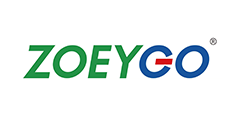Modular vs Non-Modular Power Supply: Which is Better?

For any computer enthusiast or tech-savvy individual, building a high-performance computer is a deeply rewarding experience. When it comes to choosing the components, one crucial decision that often arises is whether to opt for a modular or a non-Modular Power Supply. Both options have their merits, but it is important to understand the differences and weigh the pros and cons before making a final decision.
A power supply unit (PSU) is an essential component of any computer system. It converts the alternating current (AC) from the wall outlet into direct current (DC) that the computer's components can utilize. A modular power supply offers a unique advantage – the ability to detach or add cables as necessary. On the other hand, a Non-Modular Power Supply comes with a fixed set of cables that are permanently attached to the unit.
One of the most significant advantages of a modular power supply is its flexibility. It allows users to connect only the cables they need for their specific setup, minimizing cable clutter and improving airflow within the computer case. This not only enhances the overall aesthetics of the system but also facilitates better cooling performance. Additionally, modular power supplies make cable management significantly less challenging, making it easier to achieve a clean and organized build.
Moreover, modular power supplies often come with higher-end models that feature better build quality and more advanced features. These premium options tend to use higher-quality components and offer improved efficiency, resulting in reduced power consumption and lower energy bills. They may also come equipped with features like fanless operation, which provides a quieter computing experience.
However, it is important to note that modular power supplies often come at a higher price point compared to non-modular units. This can be a deterrent for budget-conscious individuals or those who prioritize affordability over flexibility. Furthermore, the detachable cables in modular power supplies introduce an additional point of failure – loose connections. If not properly secured, these connections can become loose over time, leading to intermittent power delivery or even system instability.
Non-modular power supplies, on the other hand, offer a simpler and more cost-effective solution. Since all the cables are permanently attached, there is no risk of loose connections. Additionally, non-modular power supplies are generally more affordable compared to their modular counterparts, making them an attractive option for budget builds.
However, the fixed cables of non-modular power supplies can present challenges when it comes to cable management. The excess cables that are not required for the specific build need to be neatly tucked away, often requiring additional effort to maintain a clean and organized appearance. This can hinder proper airflow and result in higher temperatures inside the computer case, potentially affecting the overall performance and lifespan of the components.
The choice between a modular and a non-modular power supply ultimately depends on individual preferences and requirements. Modular power supplies offer greater flexibility, improved cable management, and better overall aesthetics. They are particularly advantageous for individuals seeking a high-end build or those who prioritize efficient cooling. On the other hand, non-modular power supplies are more cost-effective and provide a simpler solution for those on a budget.
Ultimately, the decision should be based on factors such as budget, build complexity, and personal preferences. Regardless of the choice made, it is crucial to select a power supply unit from a reputable brand with sufficient wattage to ensure stable and reliable power delivery to the computer system.
- +1 Like
- Add to Favorites
Recommend
- Modular Power Supply: Efficient and Stable Power Supply Solution
- Efficient and Versatile: Experience the Power of a 850 Watt Modular Power Supply
- The 850-Watt Modular Power Supply, an Efficient and Versatile Solution, Features with Modular Design, High Efficiency and Range of Safety Features
- Highly Efficient 1000W Modular Power Supply: Unleash the Power in Style
- Maximize Efficiency and Flexibility with a Modular Power Supply for Your PC
- Unleash the Power with a 1000W Modular Power Supply
- Efficient and Versatile: Unleash the Power with a 850 Watt Modular Power Supply
- Highly Efficient 850 Watt Modular Power Supply: The Ultimate Choice for Power and Flexibility
This document is provided by Sekorm Platform for VIP exclusive service. The copyright is owned by Sekorm. Without authorization, any medias, websites or individual are not allowed to reprint. When authorizing the reprint, the link of www.sekorm.com must be indicated.






























































































































































































































































































































































































































































































































































































































































































































































































































































































